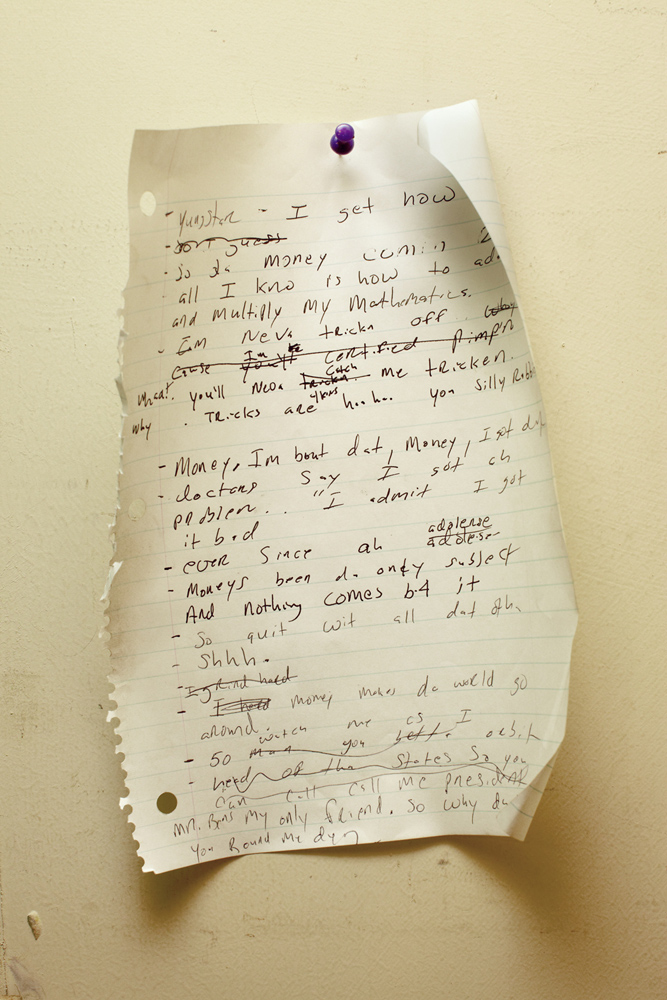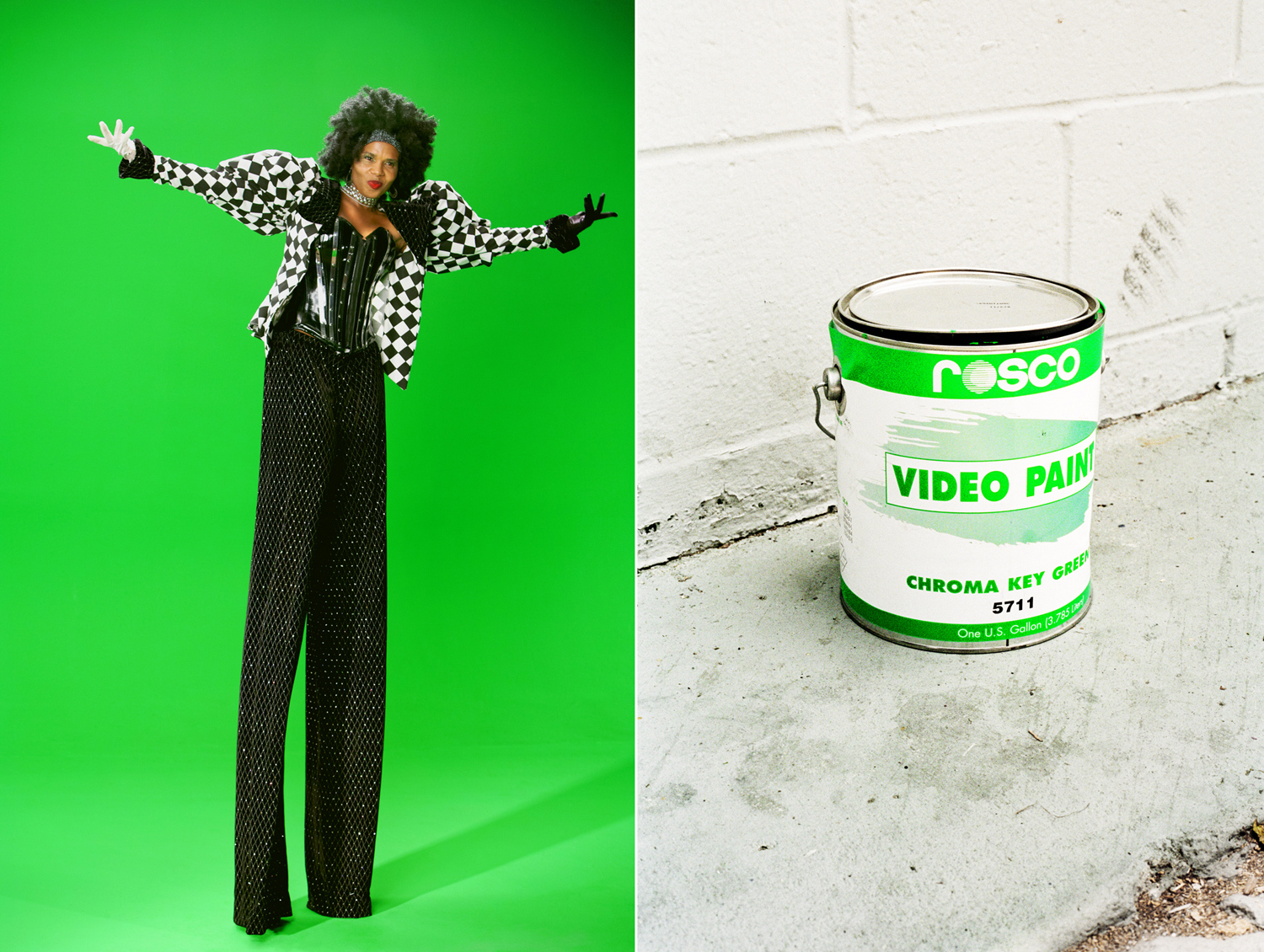
“The first thing you do when you get to town is turn on the radio” say’s Michael Schmelling in the notes to his latest book Atlanta. It all started with the music. During his frequent assignments on the hip-hop scene there, Schmelling began to formulate an idea for a book. One, he says, that “reflected both the content of an album and the context in which the record was made.” Keeping an ear out for an album or artist whose work he wanted to capture , he hit upon OutKast’s 1998 record Aquemini. “It’s an album packed with imagery, characters and narratives,” says Schmelling. “It plays like a map of Altanta, gives you the lay of the land, the accents, and even tells you what the weather is like”.
Over three years, collaborating with writers Kelefa Sanneh and Will Welch, Schmelling explored all facets of the album and searched to find out how it influenced the local scene. The trio soon realized that the music there was evolving so quickly that links to OutKast’s album were hard to find. “We found kids who were the same age as Andre and Big Boi were when they were first making records—sixteen, seventeen, or just out of high school,” says Schmelling. “But there wasn’t a trace of the sound of Aquemini–no live music at all, not much of an emphasis in lyrics. Still the music and the spirit were just as good. Maybe even more fun and immediate.”
Often, the hip-hop is seen through a narrow lens in the mass media. It’s image is heavy on poses: arms crossed, flaunting wealth, beautiful women and a defiant attitude. But in Michael Schmelling’s Atlanta, another side to the genre appears. The visual cues here are not the ones we see on MTV, or in Sean Jean ads. They’re straight-forward observations, in a real city, revealing the details of a distinct–more authentic-feeling–hip-hop culture.
Schmelling’s work breaks the Atlanta hip-hop scene down to its roots in a lose chonicle of people, places, cars and food. There are tons of details—signs in nightclubs, tags on phone booths, pitbulls, hubcaps, tattoo’s, home studios, little notes with rapper’s lyrics scribbled on them. One photograph of handwritten lyrics tacked to a wall captures a young rappers aspirations of money and success–“moneys been da only subject, and nothing comes b4 it.” The lyrics make you wonder where this vibrant scene will go next. But at least in Schmelling’s photographs, this moment in the Atlanta music scene stands still forever in its place.
Atlanta is published by Chronicle Books, and Schmelling continues to expand the project on his site atlbook.com. There you’ll find a free mix-tape to go with the book, photo outtakes, posts about hip hop in Atlanta, short video clips, links to some of the artists’s myspace pages, unguided tours of the city, maps, tattoos and more…Michael Schmelling is also the author of Shut Up Truth and The Plan. You can see more of his work here.






















More Must-Reads from TIME
- L.A. Fires Show Reality of 1.5°C of Warming
- How Canada Fell Out of Love With Trudeau
- Trump Is Treating the Globe Like a Monopoly Board
- Bad Bunny On Heartbreak and New Album
- 10 Boundaries Therapists Want You to Set in the New Year
- The Motivational Trick That Makes You Exercise Harder
- Nicole Kidman Is a Pure Pleasure to Watch in Babygirl
- Column: Jimmy Carter’s Global Legacy Was Moral Clarity
Contact us at letters@time.com